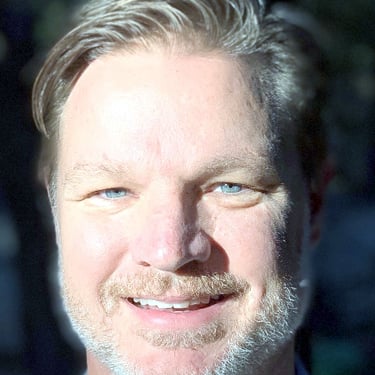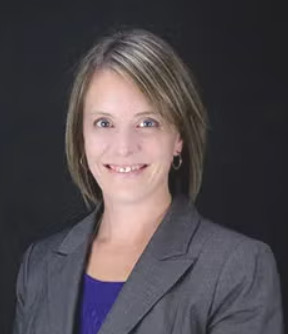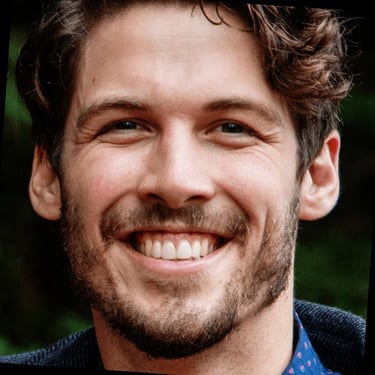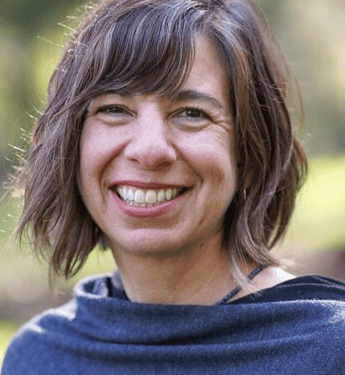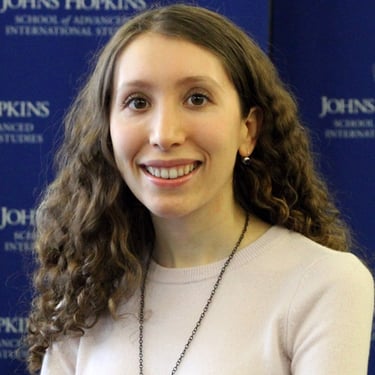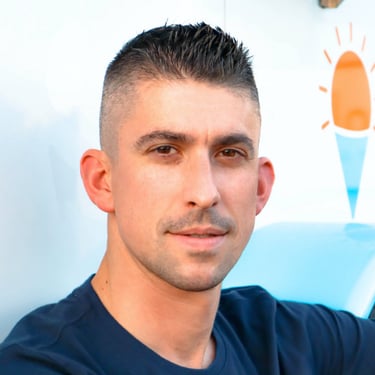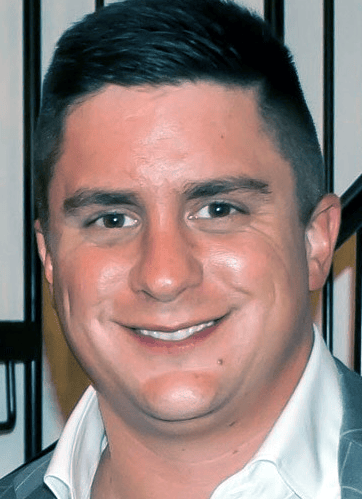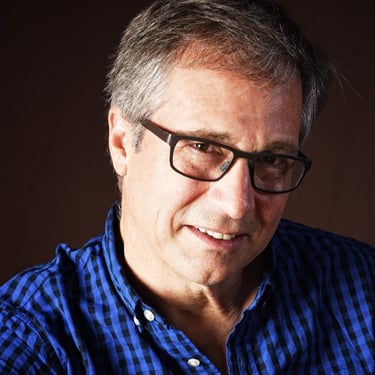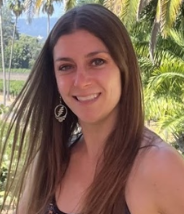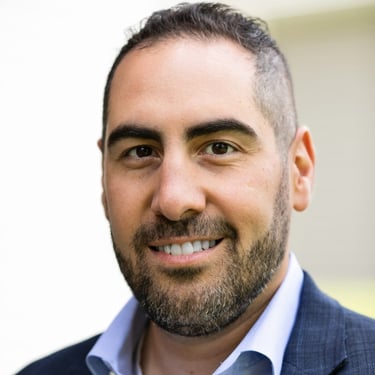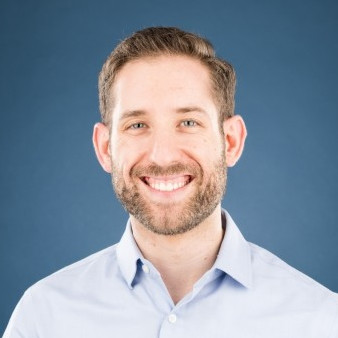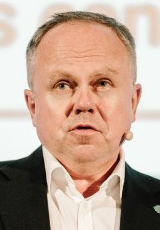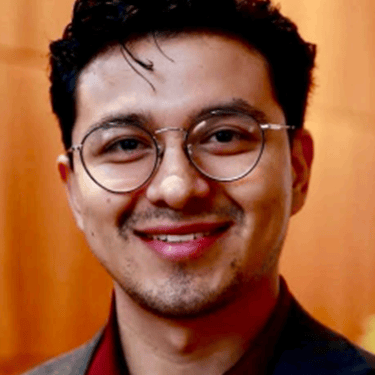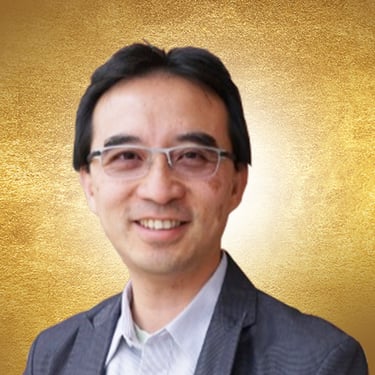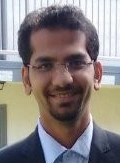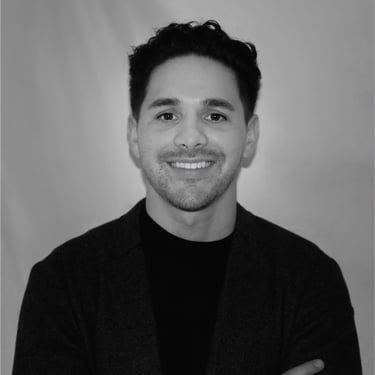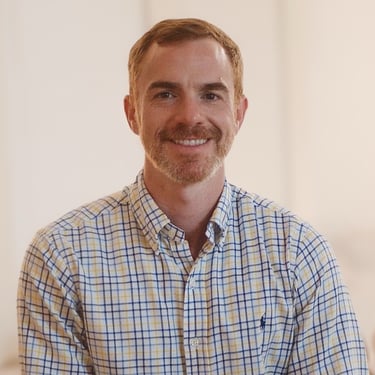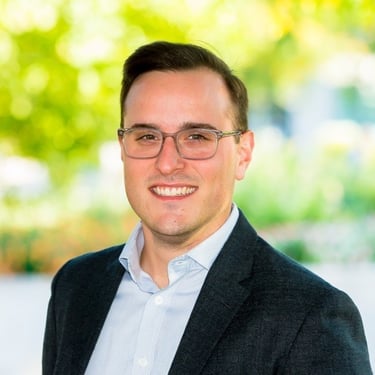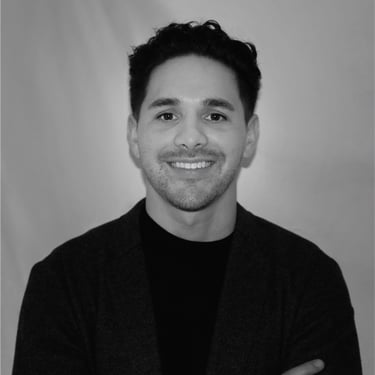Agenda
Note: Subject to change. Additional speaker and session information TBA
Monday, September 29, 2025
2:30 - 4:00 pm
Pre-Conference Tour of UT Austin Microgrid -- Open to all attendees, included in registration fee
Click here for directions and instructions on attending
UT Austin possesses one of the largest microgrids in the country, providing 100% of the power and thermal energy to a campus with 20 million square feet of buildings that accommodate more than 70,000 students, faculty and staff. Centered on its on-campus Combined Heat and Power (CHP) plant, the system generates electricity with natural gas turbines and recovers waste heat to provide steam and chilled water for heating and cooling, achieving fuel efficiency above 85%—nearly double that of a typical power plant. This highly integrated microgrid supplies nearly all of the campus’s energy needs with exceptional reliability, often achieving islanded operation independent of the regional grid. It also serves as a living laboratory for research, innovation, and education in energy systems, sustainability, and grid resilience.
Tuesday, September 30, 2025
8:00 - 9:00 am Welcome Continental Breakfast and Registration
10:00 - 10:30 am
Upgrading Microgrid Control through Advanced Distributed Sensing
10:30 - 11:00 am Networking Coffee Break
11:00 - 12:00 pm
Valuing Resilience in Energy: Applying Project Insights to State Policy
Elias Henderson
Research Assistant, Schatz Energy Research Center
California State Polytechnic University, Humboldt
> profile
12:00 - 1:00 pm Lunch Break
2:00 - 2:30 pm
Design and Operation of Service-Point Microgrids within the Military
2:30 - 3:00 pm Networking Coffee Break
5:00 - 7:30 pm
Networking Reception plus Dinner
Wednesday, October 1, 2025
8:00 - 9:00 am
Continental Breakfast and Registration
10:30 - 11:00 am Networking Coffee Break
11:30 - 12:00 pm
Lessons from Smart Grids: Human-Assisted AI for the Next Generation of Microgrids
12:00 - 1:00 pm Lunch Break
Chirag Parikh
Certification Specialist
Amazon Web Services (AWS)
> profile
Session Details
9:30 - 10:00 am | Tuesday, September 30
Bolstering Energy Resilience with Innovative Microgrid Solutions
• Importance of microgrid implementation to maintain operability in harsh environments and mission assurance
• Air Force (AF) lessons learned and progress updates in the integration microgrids at installations
• Benefits of microgrids including the dependency reduction on regional utility systems to enhance energy security
• Thermal and electrical microgrids supporting critical missions to align with AF Artic Strategy


11:00 - 12:00 pm | Tuesday, September 30
Valuing Resilience in Energy: Applying Project Insights to State Policy
Few U.S. states offer explicit payments for resilience. California’s SGIP and New York’s VDER include resilience-adjacent incentives but stop short of true backup-power compensation. Projects offer a great example of the importance of resilience to facility-owners and the very real benefits of backup power over time. Drawing on real-world microgrid and facility projects, this panel will:
Showcase examples of how developers capture resilience benefits today
Unpack the full spectrum of resilience value streams
Outline what a standardized “value of resilience” metric could look like
Explore the policy levers states to properly compensate for resilience
Key Takeaways:
· Microgrids can provide numerous public and private benefits, at least some of which should be compensated
· Resilience is currently treated as an externality that is excluded from electric rates and goes uncompensated
· The lack of a standard value of resilience doesn’t reduce the importance of grid resilience, it only makes it more difficult to make much-needed investments


1:00 - 2:00 pm | Tuesday, September 30
Value Stacking Energy Storage for Cost Reduction and Resilience
For DERs and renewables, storing energy offers significant benefits that add up in cost savings, increased power availability and revenue generation. By using locally generated power on-site, maximizing renewable energy usage and minimizing grid power usage during peak times, significant cost savings can be realized. In places where the grid is oversubscribed or subject to power safety shut offs, energy storage can offer grid services and back up power. And for demand response and other emerging grid requirements such as power quality management, energy storage can even generate revenue. The panel will present case study projects showcasing energy storage applications specifically for peak shaving, resilience and demand response.


3:00 - 4:00 pm | Tuesday, September 30
Leveraging Microgrids to Enable Resilient Power for Airports
Airports are increasingly adopting microgrids to enhance energy resilience, reduce carbon emissions, and support operational efficiency. These systems provide reliable backup power during outages, enable the integration of onsite power generation, and support critical functions such as control towers and terminals through islanding capabilities. Microgrids also help airports manage energy loads, reduce peak demand costs, and power electric ground support equipment, aligning with broader electrification and sustainability goals. This session looks at how airports are leveraging microgrids to ensure uninterrupted operations, improve energy security, and meet climate and ESG commitments.


4:00 - 4:30 pm | Tuesday, September 30
Modern Public Power: A Community-Led Energy Strategy
California cities now have the flexibility to advance clean energy, resilience, and affordability on community-driven terms. This session introduces the Spark Community Utility (SCU) model—a city‑run, opt‑in public‑power approach that allows localized deployment of solar, storage, EV charging, and microgrids alongside the existing IOU system. SCUs can begin with behind-the-meter programs and scale progressively—without utility asset buyouts or California Public Utilities Commission approvals. Participants will gain insight into how SCUs use targeted regulatory frameworks to build trust, test new services, and gradually expand infrastructure, offering a pragmatic path for municipalities looking to lead in distributed energy and resilience.
Key Takeaways:
• Opt‑in, Complementary Utility Strategy: Learn how cities can operate alongside IOUs, offering energy-related services that align with local priorities without displacing incumbent utilities.
• Stepwise Scaling from BTM to Microgrids: Discover the progression from behind-the-meter solar/storage and EV infrastructure to building local distribution and microgrids.
• Strategic Infrastructure Choices: Understand trade‑offs between serving new developments (becoming a load-serving entity) versus connecting clusters of DERs for shared resilience with less regulatory burden.
• Peer-Based Pilot Approach: Explore how charter cities with or without utility experience can collaboratively pilot SCUs—sharing studies, lowering risk, and building momentum together.

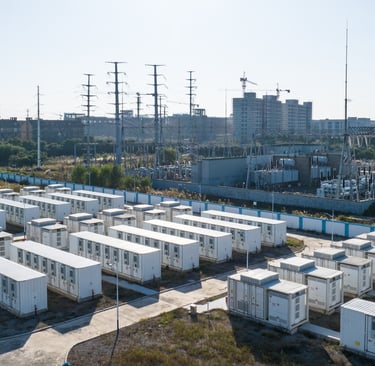
4:30 - 5:00 pm | Tuesday, September 30
Paving New Pathways for Microgrids: Policy Updates from Leading States
This session will cover the latest microgrid policy updates across several key states, highlighting some of the most distinctive and innovative policy leadership activities that have been pursued more recently in select state legislative and regulatory arenas, such as OR, CO, OH, & MI. This session will explore how state policy engagement is crucial to enabling the growth of microgrid markets and will be showcasing timely examples of successful state policy changes that will spur new project development opportunities for customers and communities.


Resilient Energy at the Edge: Innovations in Off-Grid and Distributed Power Solutions
9:00 - 10:00 am | Wednesday, October 1
As energy needs grow increasingly complex—particularly in remote, disaster-prone, or grid-constrained areas—new models for delivering reliable, scalable, and resilient power are emerging. This session explores three innovative approaches to distributed energy: a new class of generator technology that provides a cleaner, more cost-effective alternative to diesel and gas for prime power; modular microgrid systems designed for rapid deployment and streamlined operations in challenging environments; and off-grid charging solutions that enable electric vehicle use where grid infrastructure lags behind. Together, these perspectives highlight how hybrid, flexible systems are meeting diverse energy needs and expanding the reach of clean, distributed power.
Key Takeaways:
The role of next-generation generator technology in replacing traditional fossil fuel systems
How modular microgrids are accelerating reliable energy access in remote or underserved areas
How off-grid charging solutions are bridging the gap between EV adoption and grid readiness

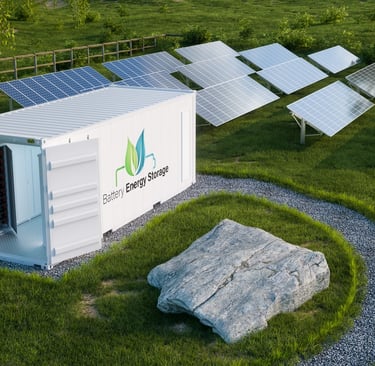
The U.S. loses 40–50% of its electricity—about 500–600 gigawatts or $200 billion to $1 trillion annually—in the form of low-grade waste heat, even as demand for energy skyrockets due to reindustrialization, AI expansion, and global data center investments. The electrical grid is aging and severely underbuilt, with only 251 miles of new transmission lines added in 2023, far below what’s needed to meet projected demand, such as the 150+ GW already requested by large users in Texas. As noted by NVIDIA’s CEO, energy availability is fast becoming the key bottleneck for AI growth, surpassing even chip manufacturing.
This session discusses a new off-grid, on-site cogeneration technology designed to address these challenges. Developed to convert low-grade waste heat—under 120°C (248°F)—into electricity with over 20% efficiency, the solution leverages liquid and air cooling down to -35°C (-31°F) with zero water use. The scalable, modular technology is designed to power hyperscale data centers, AI infrastructure, and high-performance computing facilities, helping to relieve grid strain and unlock stranded thermal energy.
Key Takeaways:
According to Deloitte, AI data center power demand could surge 30x by 2035, amid power and grid capacity constraints
The U.S. wastes a massive portion of its energy as low-grade heat while demand for power is sharply rising
Power and liquid/air cooling cogeneration up to -35°C/-31°F with zero water consumption
Power generation from low grade heat < 120°C/248°F, with over 20% efficiency

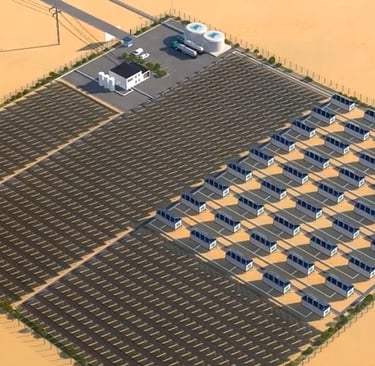
Microgrids culminate as a complex electrical local grid powered and managed through various distributed energy resources and control systems. The novelty and complexity of these systems can be overwhelming to many without a technical background resulting in apprehension for approval by authority having jurisdictions. This is particularly the case when there is an energy storage component proposed as a form of resiliency for critical healthcare facilities.
This presentation aims to provide a wholistic overview of the process of designing a microgrid for a healthcare facility under the jurisdiction of the Department of Health Care Access and Information (HCAI). Reference laws from the Health and Safety code were used as a guide to help illustrate a compliance pathway moving forward. To meet HCAI guidelines, an optimized battery energy storage system (BESS) must consider reliability, the selected form of battery technology, power quality, frequency variations, and environmental conditions. The results of undertaking the approval process for this microgrid project have illuminated additional, critical components mandated for HCAI review. This additional criteria includes continuity guarantee of critical loads, daily energy demand adaptation, and configurable communication and networking systems.
Key Takeaways:
Governing entities are working with developers to simplify the installation of renewable energy in healthcare facilities
Healthcare facilities are pushing the proliferation of distributed generation and microgrids in their campuses
Renewable energy and microgrids are proving to be a key solution to combat today’s climate changes and immediate emergency issues


11:30 - 12:00 pm | Wednesday, October 1
Lessons from Smart Grids: Human-Assisted AI for the Next Generation of Microgrids
The shift to microgrids is following a path utilities have walked before: moving from manual processes and legacy systems toward smart, data-driven infrastructure. Drawing on my experience with large scale smart grid deployments—modernizing workflows from design to installation, deployment, and testing—I will share lessons learned about adoption, integration, and keeping humans at the center of complex transitions.
Today, microgrid developers face similar challenges: resilience requirements, regulatory compliance, and the integration of distributed energy resources. Human-assisted AI offers practical ways to address these hurdles—supporting outage management, streamlining compliance reporting, and accelerating design-to-deployment cycles—without requiring a full system overhaul.
This session will highlight real-world parallels from utility modernization and invite the audience to share the pain points they see in microgrid operations today. The goal is not only to explore what’s possible with AI, but also to open a dialogue on where industry collaboration is most needed.
Key Takeaways
Lessons from smart grid rollouts that can guide microgrid adoption and integration
Practical AI use cases for resilience, compliance, and deployment support—keeping humans in control
Bridging legacy and modern systems: how to manage transitions without full replacements
Opportunities for collaboration: hearing directly from industry peers about today’s pain points and unmet needs.


Microgrids are emerging as vital ecosystems for resilient and low-carbon energy, with data centers increasingly serving as their anchor loads. While integration offers clear benefits -- reduced grid dependence, improved uptime, and sustainable operations -- it also introduces complex compliance challenges. From inverter safety (UL 1741, IEEE 1547) and energy storage integration to IT hardware safety (IEC/UL 62368-1, CE, CCC, BIS), regulatory readiness is a critical success factor.
This talk presents a compliance-by-design approach for building microgrid-ready data centers, embedding certification requirements early in the engineering process to minimize redesigns and delays. Real-world case studies demonstrate how this strategy accelerates approvals, ensures interoperability between energy and IT systems, and supports multi-region market access. By aligning microgrid innovation with global compliance frameworks, stakeholders can unlock scalable, sustainable, and certifiable energy ecosystems.


Aaron Arriaga
Commercial Project Developer
HOLT Renewables
> profile
As EV adoption accelerates, grid-stressed, remote, and off-grid areas present a growing challenge for charging infrastructure. This session explores how microgrids—integrated systems combining solar, battery storage, and intelligent controls—are enabling reliable, scalable EV charging in even the most constrained environments. Drawing from real-world deployments by HOLT Renewables, Cap Metro, and ABM, panelists will discuss how transit agencies and fleet operators are leveraging microgrids to ensure operational continuity, reduce dependency on utility upgrades, and cut emissions. Attendees will gain insight into system design, financing models, and how microgrids are being paired with EV charging to create truly resilient, future-proof solutions.
Key Takeaways:
Solar-plus-storage systems for reliable bus charging in Austin
Integrating microgrids to support scalable fleet electrification
Strategies and technology options for deploying microgrids in off-grid or rural areas
Regulatory and funding considerations for microgrid-based EV infrastructure

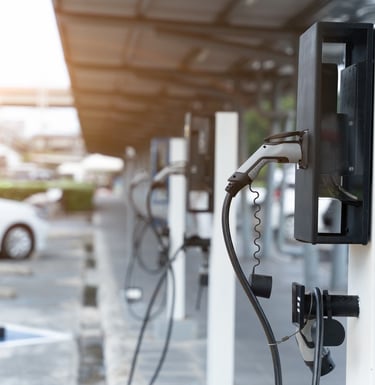
2:30 - 4:00 pm | Monday, September 29, 2025
Pre-Conference Tour of UT Austin Microgrid -- Open to all attendees, included in registration fee
Directions for attending:
The tour is open to all Forum attendees. Registration for the conference is required in order to participate.
To attend the tour, please go to the main office of the Utilities and Energy Management Department of UT Austin, located at 215 East 24th Street, Austin 78712 in the Power Plant Expansion (PPE) building. Please plan to arrive by 2:30 on Monday, September 29.
The entrance is located along 24th street through a glass door. When you enter PPE, go up one flight of stairs to the 3rd floor. The group will gather in the conference room PPE 3.304. Please plan to wear closed-toe footwear for the tour.
Speaker Backgrounds
Lucinda ‘Lucy’ Notestine
Ms. Lucinda Notestine started her career with the Air Force 30 years ago as the Energy Conservation Coordinator for Kadena Air Base in Okinawa, Japan. In her various energy-related positions, her responsibilities included designing efficient buildings, tracking Air Force consumption and audits, and environmental restoration. She has been with the Air Force Office of Energy Assurance (AF OEA) for over 8 years and is currently the Special Programs Division Chief. Her work at AF OEA encompasses installation resilience, fostering relationships with utility companies, microgrids, and small modular reactors (SMRs).
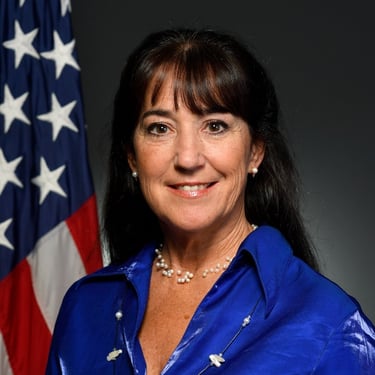

Chief - Special Programs Division
Office of Energy Assurance
U.S. Air Force
Speaking In:
Markus Virta
Markus Virta is a clean energy leader, cofounder, and managing partner at both Cascadia Renewables and Sulis Energy, where he spearheads innovative solar, storage, and microgrid projects that prioritize community resilience, climate adaptation, and equitable access to renewable energy. With over a decade of hands-on experience in system design, project development, and policy advocacy, Markus has helped shape Washington State’s renewable energy landscape through his work with the Washington Solar Energy Industries Association and the Washington State Building Code Council. Passionate about collaborative solutions, ethical business, and technical excellence, he continues to champion a just and accelerated energy transition across the Pacific Northwest and beyond.
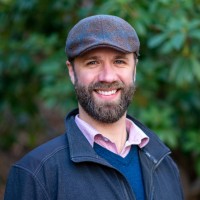

Cofounder & Managing Partner
Cascadia Renewables
Speaking In:
Ben Schwartz
Ben represents the Clean Coalition in proceedings at the California Public Utilities Commission, California Energy Commission, California Air Resources Board, California Independent System Operator, and Federal Energy Regulatory Commission on microgrids, interconnection, net energy metering, community solar, demand flexibility, electrification, energy efficiency, a highly distributed future, and more. He uses his background in environmental studies and public policy to inform the diverse local, state, and national policy work he does at the Clean Coalition. Ben is passionate about helping humanity solve the three greatest crises that exist today: climate change, the lack of clean energy, and water scarcity. Ben also worked as a researcher and producer with the World Business Academy, where he served as producer for the New Business Paradigms podcast and as assistant producer for the Academy’s Solutions News Radio Show. Ben holds a BA in History of Public Policy and Environmental Studies from UC Santa Barbara and has been with the Clean Coalition team since 2019.
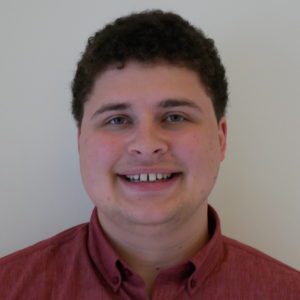

Policy Manager
Clean Coalition
Speaking In:
Adrienne Pierce
Adrienne Pierce is the Chief Executive Officer for New Sun Road. Passionate about sustainability, she was previously the head of product management at IronRidge, a leader in solar mounting and racking. And at SunEdison, Adrienne managed the REDI project to develop a platform that remotely monitored 1800 renewable energy sites globally. She currently serves on the Board of Green Empowerment and is an active member of Women in Cleantech and Sustainability. Adrienne taught chemistry and physics as a Peace Corps volunteer in Gabon, Africa. She holds an M.B.A from Thunderbird and a B.S. in Chemical Engineering from Lafayette College.
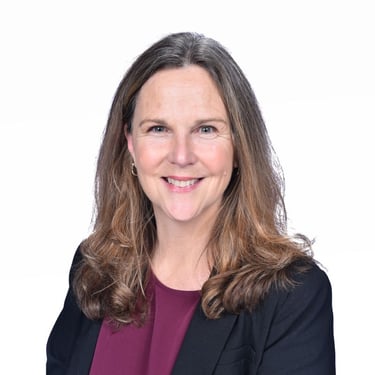

Chief Executive Officer
New Sun Road
Speaking In:
Andrew Tanner
Andrew Tanner is a technology and commercialization leader in the clean energy sector, currently serving as Chief Technology Officer at Yotta Energy, where he drives innovation in decentralized energy storage solutions. With a dual degree in Mechanical Engineering and Business from the University of Sydney and a Global Executive MBA, Andrew has over a decade of experience scaling cleantech startups and commercializing renewable energy technologies. His past roles include VP of Business Development at Geli, where he led commercial strategy across U.S. and Australian markets, and key engineering positions at Ausra and Chromasun. Andrew has been recognized with multiple honors—including the Advance Global Australian of the Year in Clean Technology and CSIRO’s Australian Innovation Award.
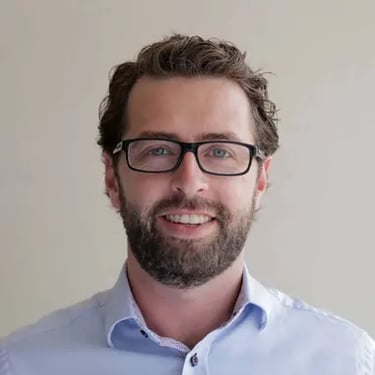

Chief Technology Officer
Yotta Energy
Speaking In:
Megan Williams
Megan Williams is a Senior Business Development Associate at Endurant Energy, where she has been a contributor for nearly three years. Based in Southern California, Megan supports strategic partnerships and project development efforts across the region. Her work focuses on helping municipalities, universities, and commercial clients implement sustainable and resilient energy solutions.


Speaking In:
Mark Schneider
Mark Schneider is the President of the East Region at Cordia Energy, where he leads strategic growth and operations across the eastern U.S., with a focus on sustainable and resilient energy infrastructure. Based in Pittsburgh, he brings over a decade of experience in engineering, project management, and business development, with previous leadership roles at Clearway Community Energy, DTE Energy, ATI Powder Metals, and IMG Midstream. Mark holds an MBA from Carnegie Mellon University’s Tepper School of Business and a bachelor's degree in Mechanical Engineering from Penn State University.
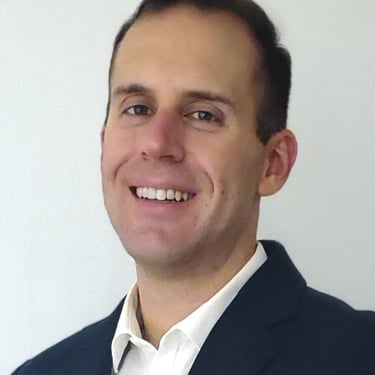

Speaking In:
Sze Wong
Sze Wong is a visionary technology leader and a pioneer in the field of software development, renowned globally for his expertise in eliminating technical debt and driving sustainable innovation. As the founder and CEO of an award-winning technology firm, Sze has spent decades transforming how businesses approach software development, blending cutting-edge AI with pragmatic strategies to empower organizations to scale effectively while minimizing risk.
A passionate advocate for sustainable development, Sze has helped companies across industries—from startups to Fortune 500 enterprises—navigate the complexities of modern software systems. His insights into reducing technical debt have redefined how teams build and maintain scalable solutions, ensuring long-term agility and profitability.
In addition to his groundbreaking work on technical debt, Sze is at the forefront of leveraging AI to revolutionize software engineering, field automation, and big data integration. His ability to demystify complex technologies and present actionable strategies has made him a sought-after speaker at global conferences, where he captivates audiences with his deep technical expertise and inspiring vision for the future of technology.
Co-Founder and General Partner
Zenith Venture Studio
Speaking In:
Shannon Strank
Ms. Shannon Strank has 13 years of experience as a mechanical engineering. She has participated in research at the University of Texas Center for Electromechanics (UT-CEM) for the past 7 years. Her early research responsibilities were primarily focused on dynamic simulation of electro-mechanical systems for the DOD, Ms. Strank was often the architect of the dynamic simulation model representations of a system or subsystem for testing purposes. Building simulation models provided her with exposure to application across numerous fields, including aviation, agriculture, defense, transportation, and more. Dynamic simulations of real-world prototypes are often multi-disciplinary, requiring the development and incorporation of control algorithms, flexible elements represented using finite element meshing, and the incorporation of field test data for the simulation of real-world recorded data. This breadth of exposure really drove Ms. Strank toward program development.
Following her MBA from The University of Texas at Austin, Ms. Strank became the Assistant Director for the Center for Electromechanics. She works closely with Center Program Managers in implementing a complete funding strategy. She identifies and interacts with potential research sponsors, including individuals, corporations and foundations, to ensure that CEM maintains diverse funding sources toward world changing research. At CEM, relationships with all stakeholders are essential to the Center’s success. Ms. Strank manages communication of CEM’s accomplishments and activities both within UT and to external partners. In addition, she leverages her experience as both a mechanical engineer and a business manager to transfer novel technologies to the ever changing needs of industry.
Deputy Director
University of Texas Center for Electromechanics
Speaking In:
Upgrading Microgrid Control through Advanced Distributed Sensing
Thomas Myers
Tom Myers serves as the Energy Program Supervisor for the Texas Army National Guard and holds the rank of Major in the Marine Corps Reserve. He is currently assigned as a Civil Affairs Officer with the 3D Civil Affairs Group. In his role with the Texas Army National Guard, Tom oversees the implementation of energy and water resiliency projects and efficiency initiatives and ensures compliance with DOD, federal, and state reporting requirements. He is also involved in testing and integrating emerging technologies.
Recently, Tom completed a 10-month deployment to Southeast Asia, focusing on energy and water resiliency programming in the northern provinces of the Philippines. During this time, he collaborated with the Naval Postgraduate School's Energy Academic Group, the Batanes provincial government, the Armed Forces of the Philippines, and various USG/DOD agencies to lead the first Energy Resiliency Readiness Tabletop Exercise in the U.S. Indo-Pacific Command.
In addition to his professional and military duties, Tom owns Solar Sno Shaved Ice, a 100% solar- and battery-powered food truck chain based in South Austin.
Energy Program Supervisor
Texas Army National Guard
Speaking In:
Wissam Balshe
Wissam Balshe has 20+ years of experience in onsite power solutions, power distribution systems & controls. He leads the Channel Partnerships team at Mainsping Energy, working with resellers, referral partners, and strategic teaming partnerships. Prior to joining Mainspring, Wissam spent 16 years at Cummins focusing on developing distributed energy and microgrid go-to-market strategies, implementing onsite power projects and offering creative business models to help commercial and industrial customers meet their power needs and ESG goals. Wissam has served on multiple onsite power codes & standards committees and distributed energy trade associations, and has published multiple white papers on smart grids and onsite power applications.
Senior Director- Channel Partnerships
Mainspring Energy
Speaking In:
Jesus Mena
Jesus Mena is a Development Engineering Manager at Ameresco and has been a
team lead in solar and storage projects built in California and under HCAI jurisdiction. He has managed development for over 15 MW of distributed solar energy and is venturing into the medical microgrid space. His expertise has been critical to the success of Ameresco and navigating strict jurisdictions, such asHCAI. His goal is to share his experience building distributed energy resources in the medical space and aiding the proliferation of renewable energy projects across the State of California.
Manager-Development Engineering
Ameresco
Speaking In:
Timothy Harvey
Tim leads Austin Energy’s Customer Renewable Solutions team, bringing over 30 years of experience in the energy industry, including 18 years in Austin Energy’s solar group. Under his leadership, Austin Energy has developed and expanded its award-winning Residential, Multifamily, and Commercial rebate programs, as well as GreenChoice, Community Solar, and Shared Solar programs. Tim is dedicated to advancing renewable energy solutions that benefit the Austin community and support the city’s sustainability goals.
Director - Customer Renewable Solutions
Austin Energy
Speaking In:
Chirag Parikh
Chirag Parikh is an experienced electrical engineer with over 13 years of expertise in product safety, global market access, and regulatory compliance. Currently he works at Amazon Web Services (AWS) as a Certification Specialist, where he leads international hardware compliance programs across more than 45 countries. Chirag's focus is on ensuring that data center infrastructure, including edge and AI-based hardware, meets global safety, EMC, and environmental requirements. Throughout his career, Chirag has developed and implemented certification strategies, managed quality systems aligned with ISO/IEC standards, and led engineering teams through complex compliance challenges. He previously worked with organizations such as Intertek and SDP Engineering, gaining hands-on experience in EMI/EMC testing, lithium battery safety, and regulatory approvals across a wide range of products. Chirag holds a Master's degree in Computer Engineering from California State University, Fullerton, and a Bachelor's in Electrical Engineering from Gujarat Technological University, where he graduated as a Gold Medalist. He is an active member of IEEE and passionate about advancing safe and scalable technologies for global markets.
Certification Specialist
Amazon Web Services (AWS)
Speaking In:
Aaron Arriaga serves as a Commercial Project Developer for HOLT Renewables. Aaron is responsible for building the framework for organizations interested in integrating onsite generation, microgrids and EV infrastructure into their operations. In this role Mr. Arriaga leverages 11 years of experience in energy infrastructure projects across the nation to ensure successful transitions into sustainability and resiliency.
Prior to joining HOLT Renewables Aaron was a part of the team who started a solar panel manufacturing plant in San Antonio, Texas called Mission Solar Energy. Aaron led the business development team by integrating the locally manufactured solar panels into the national market. Aaron earned a bachelor’s degree in management science at the University of Texas at San Antonio and studied Political Science at Southwest University for Nationalities in Chengdu, China. Aaron is currently a Texas McCombs MBA candidate for the class of 2027.
Commercial Project Developer
HOLT Renewables
Speaking In:
As a Project Manager at CapMetro, Antonio leads the electrification and renewable energy projects, collaborating with the City of Austin, Austin Energy, contractors, and key stakeholders to deliver multimillion-dollar capital projects. His role encompasses obtaining necessary permits, leading the team and subject matter experts (SMEs) coordination, and overseeing transformative initiatives that advance the company's Zero Emissions Program.
Antonio has a strong background in project management, engineering, and renewable energy, with over 13 years of experience in the field. He holds a Master's degree in Project Management from Universitat de Barcelona and a Master's degree in Renewable Energies from Universidad Internacional de Valencia (VIU), Spain.
Project Manager
Cap Metro
Speaking In:
Scott Batchelder
Scott Batchelder is a Senior Business Development Manager for ABM eMobility, where he originates, structures, and executes clean energy infrastructure projects. With deep expertise in Electric Vehicle Supply Equipment (EVSE), Charging Infrastructure (EVCI), and Electric Vehicle Operating Software (EV OS), Scott drives project origination, structuring, and execution for both new and existing clients.
Scott’s background spans clean energy project development and finance, including EV charging design and deployment, solar feasibility consulting and owner’s representation, and energy efficiency. He has experience securing financing solutions such as Property Assessed Clean Energy (PACE), lease financing, 179D tax incentives, and leveraging federal and state funding mechanisms. Scott is known for bridging technical feasibility with financial viability, and supporting clients’ long-term sustainability and decarbonization strategies.
Senior Business Development Manager
ABM Industries
Speaking In:
Elias Henderson
Speaking In:
Elias is an energy researcher at the Schatz Energy Research Center at
California State Polytechnic University, Humboldt. His research focuses on rural microgrids, especially evaluation & quantification of resilience and avoided/deferred infrastructure investment value. He is also principal at Hummingbird Consulting, with core competencies in strategic planning & infrastructure, grant writing, and database/information systems. Elias has grant writing experience from modest community projects to >$1 million facility grants. He holds a master's degree in Energy Technology and Policy from Cal Poly Humbolt.
Justine Sanchez
Speaking In:
Justine has been working in the renewable energy industry since 1993. She has played many technical roles over these last thirty years, such as an NREL research assistant to a NABCEP-certified photovoltaic (PV) system installer, to a PV system designer and project manager. Justine’s previous experience includes reviewing electrical plan sets for PV and solar-plus-storage projects, acting as a project consultant and facilitator for commercial-scale solar-plus-storage systems, and acting as an educator for the solar industry both as a curriculum developer and IREC Certified Master Trainer for Solar Energy International and as a senior technical editor and author for Home Power Magazine. She is a principal voting member of Code Making Panel 13 (CMP-13) for the National Electrical Code. Justine has cultivated a deep understanding of the industry and has honed her skills to relay knowledge about industry best practices and code requirements. As a technical sales engineer, Justine aims to break down the complexity that can exist between paralleling various power sources, and assist clients in implementing Generac’s microgrid control solutions into their renewable energy projects.
Allie Detrio
Speaking In:
Allie Detrio is the Founder & Chief Strategist for Reimagine Power, a boutique microgrid and cleantech policy consulting firm headquartered in San Francisco, CA. Detrio leads a team of 8 and manages a diverse portfolio of clients and projects, including serving as an expert witness and providing testimony in multiple state legislatures, public utilities commissions, energy agencies, and other policy venues. She is also the Senior Advisor for the Microgrid Resources Coalition (MRC), where she leads all microgrid industry advocacy efforts in the western states, and is a registered lobbyist for the MRC in California.
Most recently, this summer, Detrio was recognized for her integral leadership role in the creation and passage of Oregon’s landmark microgrid legislation (HB 2066 & HB 2065).
Detrio is an award-winning advocate well-known for her policy leadership in passing California’s original microgrid legislation (SB 1339), as well as its historic $800M energy storage market expansion legislation (SB 700), both in 2018. Since then, she has successfully secured microgrid eligibility and funding for California’s reliability incentive programs ($700M in AB 205), created new community energy resilience programs in California (CERRI – SB 99/833), Oregon (HB 3630), and Colorado (HB 22-1013), as well as Colorado’s Microgrid Roadmap (HB 22-1249), among many other notable DER policy and regulatory achievements.
Allie Detrio has more than 17 years of industry experience and celebrated over 6 years in business. She was one of the first in the world to receive an accredited B.S. in Sustainability from the Global Institute of Sustainability at Arizona State University.
Bob Krause
Speaking In:
Bob Krause is a seasoned technologist and policy strategist with over three decades of experience driving innovation at the intersection of energy, technology, and community development. As a founding member of the Spark Communities Initiative, Bob is helping California cities pioneer cutting-edge, city-led clean energy models—such as microgrids and opt-in municipal utilities—that bypass traditional regulatory barriers and accelerate the adoption of resilient, equitable energy systems. A University of Michigan graduate with a background in computer science, Bob has launched and led multiple ventures, from creating one of the first object-oriented databases used in mass-market software to advancing 3D modeling education through Inventor Studios.
Anna Bella Korbatov
Speaking In:
Anna Bella Korbatov joined the Fermata Energy team in 2017. She manages the company's policy and regulatory affairs strategy in California and leads the company’s collaboration with state agencies, utilities, and local jurisdictions on the design of Vehicle Grid Integration (VGI) rates and programs, make ready funding, interconnection policies, and grant-funded opportunities. She received a bachelor's degree in political science from UC Berkeley and a Master’s in International Relations & Economics from the Johns Hopkins School of Advanced International Studies (SAIS). At SAIS, she worked with the Swiss Reinsurance Company on a research consultancy evaluating risks to the electrical infrastructure of the Pacific Northwest. Before joining Fermata, she worked at the Kaizen Company, an international development consulting firm in Washington, D.C.
Joshua Barney
Speaking In:
Joshua Barney is a seasoned energy industry leader and current Director of Microgrid and Distributed Energy Solutions at Eaton, based in Baltimore, Maryland. With over 15 years of experience across roles in sales, pricing, and strategic account management—spanning organizations like Eaton and Schneider Electric—Joshua specializes in helping clients enhance resilience, connectivity, and sustainability through advanced energy solutions. His expertise in project management, data analytics, and energy market strategy supports his mission to drive the transition to a cleaner, more reliable energy future. He holds a bachelor’s degree in Marketing from Indiana University of Pennsylvania.
Andrey Bugrov
Speaking In:
Andrey Bugrov is a serial entrepreneur with many years of experience in investing and developing technologies in the field of renewable energy, waste heat reuse, and energy efficiency. Currently he is CEO of Waste to Energy Generating Inc., located in Calgary, Alberta, Canada. The company specializes in the deployment of a breakthrough offgrid, onsite, behind the meter, off natural gas pipeline, 0 water, 24/7 waste heat to power and liquid cooling technology for hyperscale data centers.
Andrey holds a civil engineering degree from the Moscow State University of Geodesy and Cartography (MIIGAiK) in Moscow, an MBA from the Russian-German School of Management in Moscow, and a Canadian Securities Course diploma from the Canadian Securities Institute in Toronto.
Benjamin Mandel
Speaking In:
Benjamin Mandel is Vice President, Market Development at L-Charge, where he leads strategic partnerships for off-grid fast EV charging. Ben works with charging developers, commercial and municipal fleets, and government agencies to devise go-to-market strategies for innovative charging solutions. Ben previously worked at CALSTART, providing executive oversight of strategic planning and business development across the organization, and led clean transportation and energy sector initiatives for the NYC Mayor's Office of Sustainability. Ben lives on Long Island, New York, and holds Master's degrees in Public Policy and Energy & Resources from the University of California at Berkeley and a Bachelor's degree in Mathematical Economics and Hispanic Literature & Culture from Brown University.

